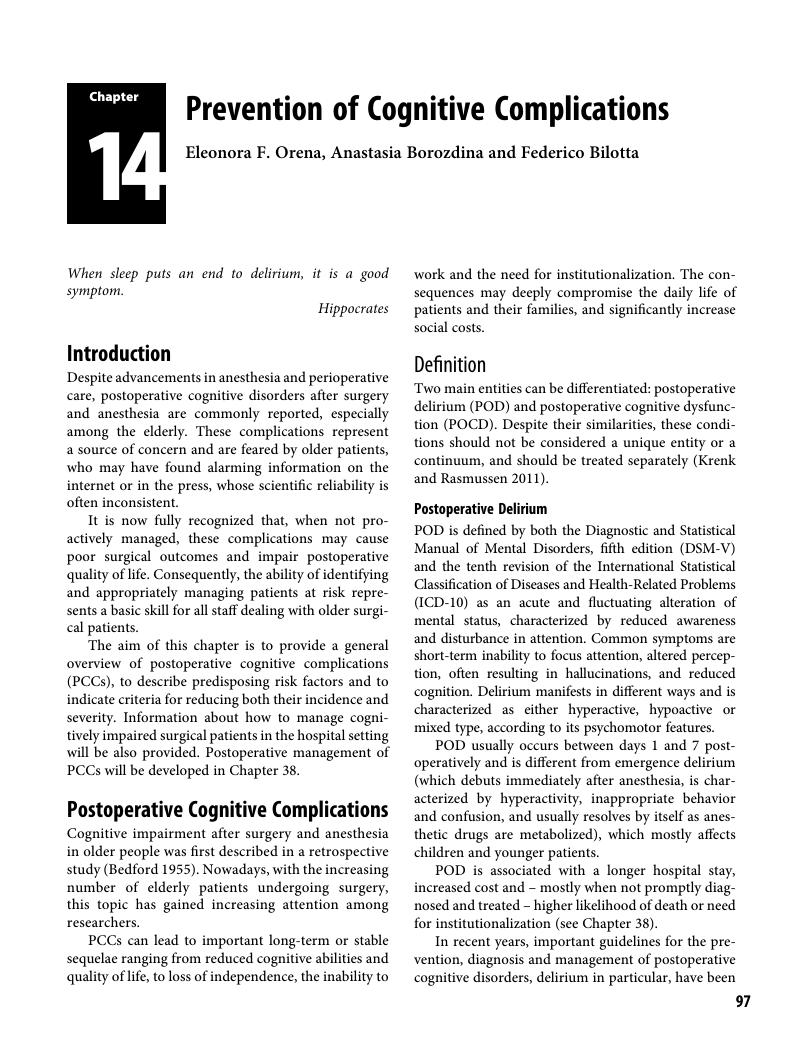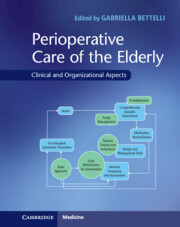Book contents
- Perioperative Care of the Elderly
- Perioperative Care of the Elderly
- Copyright page
- Contents
- Contributors
- Forewords
- Preface
- Introduction: Population Aging, Healthcare Systems and Surgery
- Section 1 Preoperative Evaluation
- Section 2 Preparation for Surgery
- Chapter 12 Prehabilitation: How to Enhance Cardio-respiratory Functional Reserve Before Surgery
- Chapter 13 Diagnosis and Treatment of Nutritional Deficits
- Chapter 14 Prevention of Cognitive Complications
- Chapter 15 Psychological Support in Elderly Surgical Patients
- Chapter 16 The Role of Geriatric Nurses in Preparing the Elderly for Surgery
- Section 3 Intraoperative Management
- Section 4 Postoperative Management
- Section 5 Key Issues for Optimal Organization
- Index
- References
Chapter 14 - Prevention of Cognitive Complications
from Section 2 - Preparation for Surgery
Published online by Cambridge University Press: 16 November 2017
- Perioperative Care of the Elderly
- Perioperative Care of the Elderly
- Copyright page
- Contents
- Contributors
- Forewords
- Preface
- Introduction: Population Aging, Healthcare Systems and Surgery
- Section 1 Preoperative Evaluation
- Section 2 Preparation for Surgery
- Chapter 12 Prehabilitation: How to Enhance Cardio-respiratory Functional Reserve Before Surgery
- Chapter 13 Diagnosis and Treatment of Nutritional Deficits
- Chapter 14 Prevention of Cognitive Complications
- Chapter 15 Psychological Support in Elderly Surgical Patients
- Chapter 16 The Role of Geriatric Nurses in Preparing the Elderly for Surgery
- Section 3 Intraoperative Management
- Section 4 Postoperative Management
- Section 5 Key Issues for Optimal Organization
- Index
- References
Summary

- Type
- Chapter
- Information
- Perioperative Care of the ElderlyClinical and Organizational Aspects, pp. 97 - 102Publisher: Cambridge University PressPrint publication year: 2017



